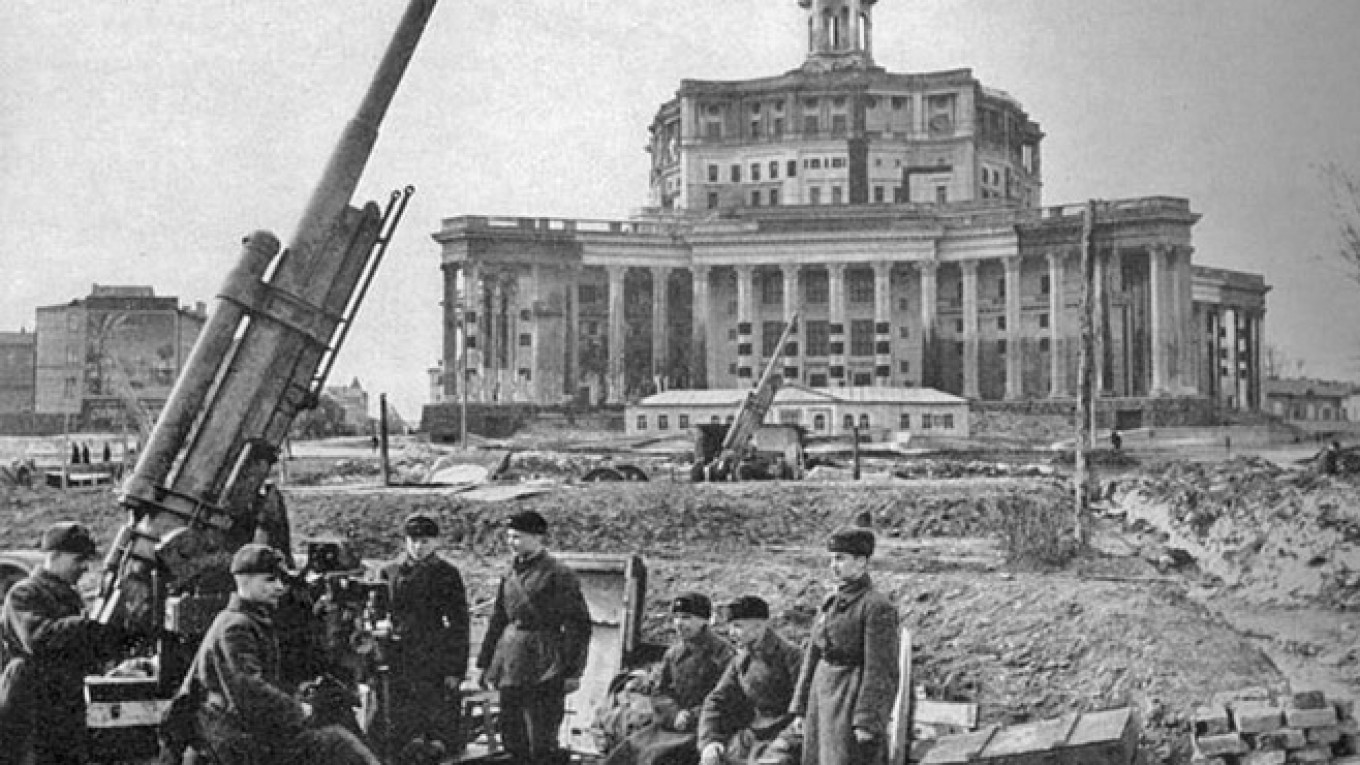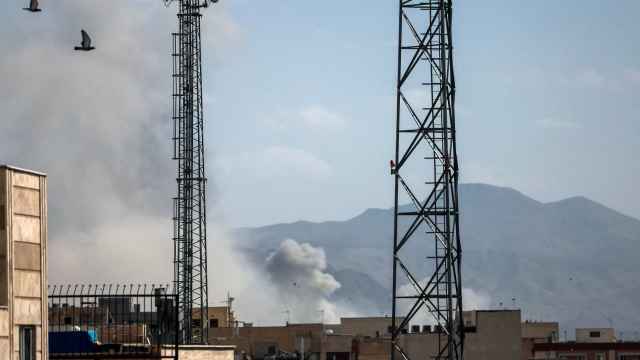Sunday marked the 73rd anniversary of Nazi Germany's invasion of the Soviet Union: "Operation Barbarossa," one of the largest military operations in history.
See the photo gallery: A City at War: Moscow in 1941
The invasion broke the 1939 nonaggression pact between the Soviet Union and Nazi Germany. Despite intelligence reports warning Soviet leader Josef Stalin of the imminent attack, he refused to believe an invasion was coming.
Soviet troops were at first overwhelmed by the attack. After Kiev had fallen and Leningrad had been encircled, Germany launched "Operation Typhoon" against Moscow in October 1941, with more than 1,500 panzer tanks and 1,000 aircraft heading toward the Soviet capital, according to David Stahel, a military historian specializing in World War II.
Fearing the capital would fall, Stalin ordered the government to be evacuated to the city to Kuibyshev, or modern day Samara, about 800 kilometers to the east of Moscow. According to British historian Richard Overy, hundreds of thousands of children were drafted to dig ditches and set up tank traps and firing points around the city. The Moscow region was transformed into a fortress.
Many of the city's workplaces were closed, and 2 million Muscovites were evacuated by train. Some of the capital's social and cultural treasures — including state archives, Lenin's embalmed body and the sets of the Bolshoi Theater — were also evacuated from the war-torn capital.
Some of those who remained in the city found shelter from German airstrikes in the city's metro, including at Mayakovskaya station.
The Battle of Moscow lasted until January 1942, when the Soviet Union launched a massive counter-offensive. The Red Army lost nearly 1 million soldiers in the battle for its capital city.
A Message from The Moscow Times:
Dear readers,
We are facing unprecedented challenges. Russia's Prosecutor General's Office has designated The Moscow Times as an "undesirable" organization, criminalizing our work and putting our staff at risk of prosecution. This follows our earlier unjust labeling as a "foreign agent."
These actions are direct attempts to silence independent journalism in Russia. The authorities claim our work "discredits the decisions of the Russian leadership." We see things differently: we strive to provide accurate, unbiased reporting on Russia.
We, the journalists of The Moscow Times, refuse to be silenced. But to continue our work, we need your help.
Your support, no matter how small, makes a world of difference. If you can, please support us monthly starting from just $2. It's quick to set up, and every contribution makes a significant impact.
By supporting The Moscow Times, you're defending open, independent journalism in the face of repression. Thank you for standing with us.
Remind me later.






